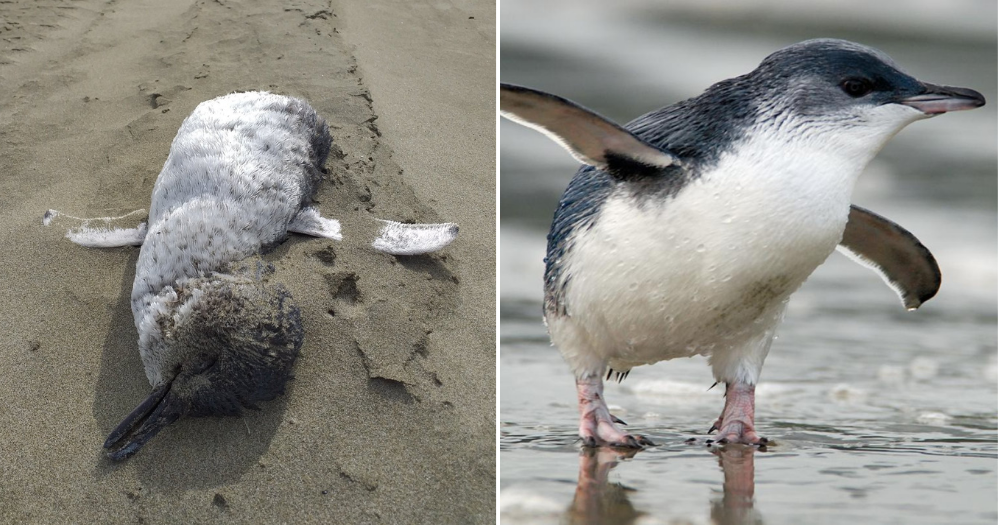Follow us on Telegram for the latest updates: https://t.me/mothershipsg
Hundreds of little penguins, the world's smallest penguin species and one that is native to New Zealand, have been washing up on the island's shores.
Little penguins are a common sight in New Zealand.
However, in the past week, locals have been seeing their carcasses wash ashore on beaches.
The Guardian reported that locals came across 183 penguins on Ninety Mile Beach recently in June.
At the end of May, 109 dead individuals were found at the same beach, and another 40 were found at another beach in mid-May.
Hi @docgovtnz, 3 dead blue penguins on 90 mile beach today, about 12km north of #Ahipara. All within a 100m stretch of each other. Run over by cars? Or victims of a certain fishing method? #NewZealand #Aotearoa #Wildlife #Penguins@nzherald @NZStuff @Breakfaston1 pic.twitter.com/isuo4OV1Yk
— Jeff Rice (@EvolvingCaveman) May 2, 2022
In one area, the carcasses were also piled along a walking track.
Locals speculated to the NZ Herald that the penguins might have been picked up from the beach and then dumped there.
Locals were subsequently urged by authorities to leave the penguins where they are washed ashore to be washed back out to sea, or to decompose naturally.
#LATEST | 'These are not just washed-up penguins; they have actually been dumped here' https://t.co/xVYKtG1hnw pic.twitter.com/jcv1hph4Mk
— nzherald (@nzherald) June 12, 2022
According to The Guardian, a principal science advisor from New Zealand's Department of Conservation (DOC) who studies sea birds, Graeme Taylor, believes that over 500 dead penguins have washed up since the start of May 2022.
This number may even be approaching 1,000, Taylor believes.
Taylor also shared that necropsies on the dead penguins indicated starvation and hypothermia, The Washington Post reported.
Die-off events in the past
These mass die-offs of little penguins in New Zealand are not exactly new.
According to a 2021 report by the DOC, "some level of mortality [of little penguins] is natural and to be expected".
On years with La Niña, a weather phenomenon which brings warmer waters in the ocean to New Zealand, penguins might find that food is more scarce as fish stay in cooler waters.
As such, the report stated that dead penguins can start turning up on beaches as early as November.
Thus far, die-off events, which are classified as so when more than 1,000 birds wash up in a year, have occurred in 1974, 1985 and 1998.
Climate change
However, Taylor notes that such events have become more frequent, and there have been at least three mass die-offs in the past decade, The Guardian reported.
This increased frequency could potentially be attributed to climate change.
Taylor shared that climate change has also been warming up waters, further worsening the penguins' food supply.
The Washington Post reported that this change could also cause the birds to fall ill, making them more vulnerable to predators and making it harder for them to nest and breed.
Should the die-off events continue to occur regularly, the little penguin population might not have enough time to recover.
Top photo from EvolvingCaveman / Twitter and Naver
If you like what you read, follow us on Facebook, Instagram, Twitter and Telegram to get the latest updates.
